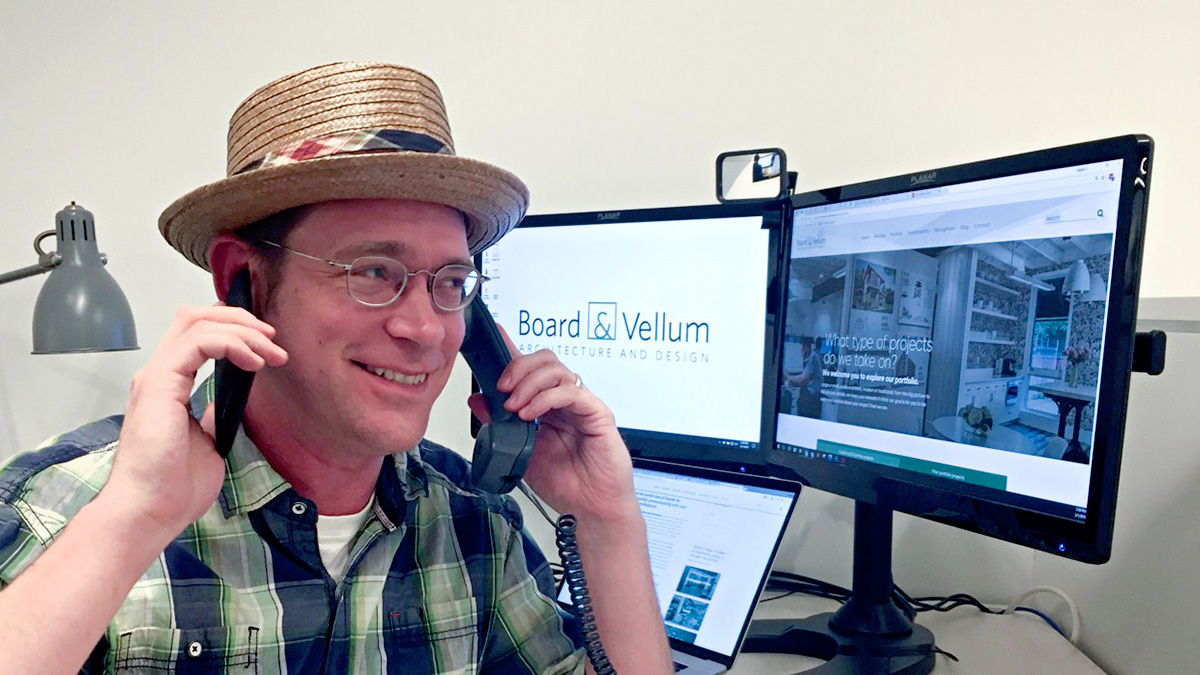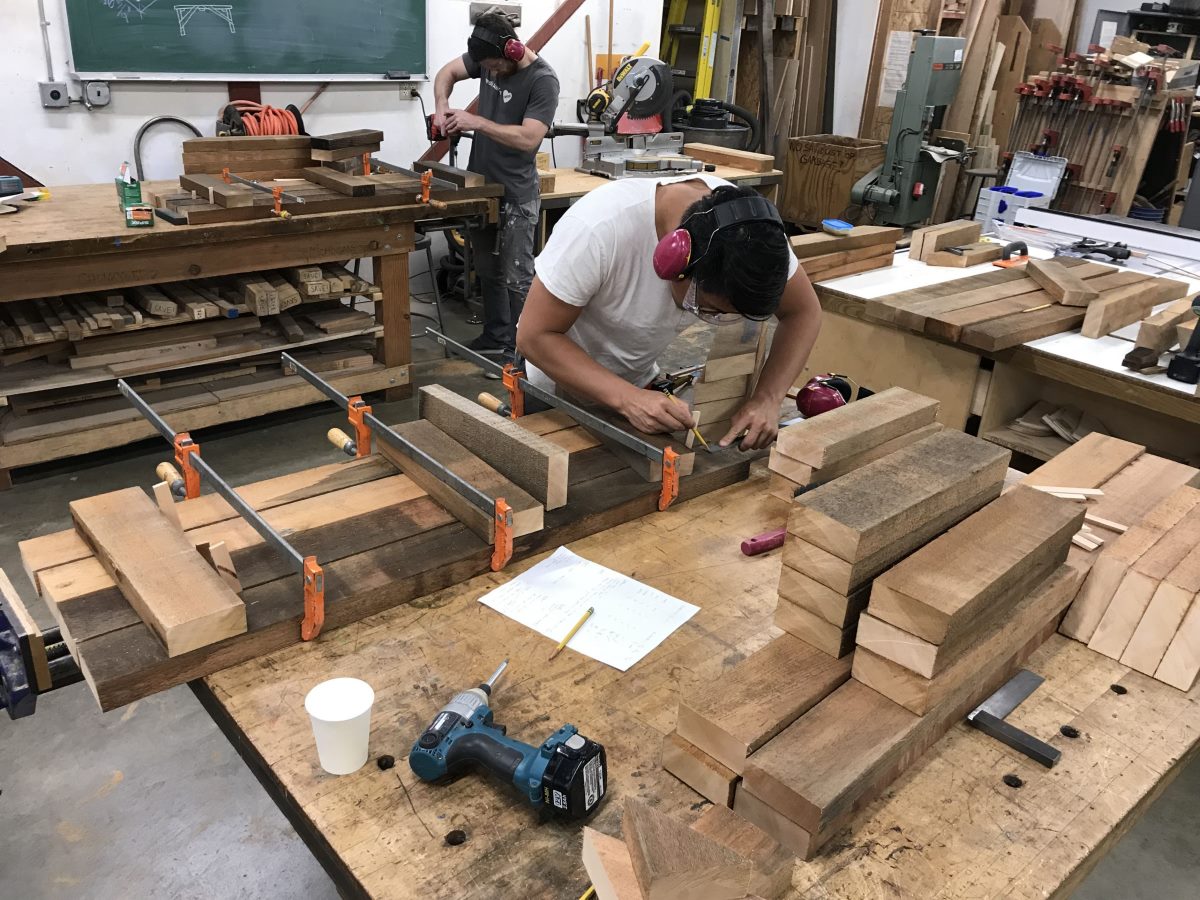Home>Garden Essentials>How To Find A Landscaping Job


Garden Essentials
How To Find A Landscaping Job
Modified: March 15, 2024
Looking for a landscaping job? Learn how to find garden-focused employment opportunities and enhance your career in the thriving field of landscaping.
(Many of the links in this article redirect to a specific reviewed product. Your purchase of these products through affiliate links helps to generate commission for Storables.com, at no extra cost. Learn more)
Introduction
Are you passionate about gardening and landscaping? Do you have a green thumb and a keen eye for design? If so, a career in landscaping may be the perfect fit for you. Landscaping jobs offer a variety of opportunities to work outdoors, create beautiful spaces, and make a positive impact on the environment.
Whether you’re a seasoned professional or just starting out, this article will provide you with step-by-step guidance on how to find a landscaping job. From assessing your skills and interests to nailing the job interview, we’ll cover everything you need to know to kick-start your career in the field of landscaping.
Before we dive in, it’s important to note that landscaping is a broad field with various job options. These may include landscape design, lawn maintenance, hardscaping, irrigation, and more. Assessing your skills and interests will help you determine which area of landscaping is the best fit for you.
So, let’s get started on your journey to finding a fulfilling and rewarding landscaping job!
Key Takeaways:
- Assess Your Skills and Interests
Before pursuing a landscaping job, identify your strengths and weaknesses. Explore your passion for designing outdoor spaces, working with plants, or creating sustainable landscapes to align your career goals with your interests. - Research and Network
Research different landscaping roles and companies to align with your skills and interests. Utilize online job boards and network within the industry to uncover hidden job opportunities and build connections for a successful job search.
Read more: How To Bid On Landscaping Jobs
Step 1: Assessing Your Skills and Interests
Before diving into the world of landscaping jobs, it’s essential to assess your skills and interests. This self-reflection process will help you identify your strengths and weaknesses, as well as determine if you have a genuine interest in pursuing a career in landscaping.
Identifying Your Strengths and Weaknesses
Start by making a list of your skills and abilities relevant to landscaping. These may include plant knowledge, design skills, physical stamina, or the ability to operate landscaping machinery. Be honest with yourself and highlight the areas where you excel.
On the other hand, recognize your weaknesses, too. Identifying areas where you may need improvement will help you create a plan to develop those skills and become a well-rounded landscaping professional. Perhaps you need to work on your plant identification or learn more about sustainable landscaping practices.
Keep in mind that not all skills can be developed overnight. It’s essential to set realistic expectations and focus on continuous learning and growth.
Determining Your Interests in Landscaping
Next, consider your interests and passion for landscaping. What aspects of landscaping excite you the most? Do you love designing outdoor spaces, working with plants, or creating sustainable landscapes?
Take some time to explore various landscaping projects, magazines, and websites to get a better understanding of the different aspects of the field. Attend gardening events or visit local botanical gardens to gain inspiration and insights into the world of landscaping.
Reflect on your past experiences as well. Have you enjoyed gardening as a hobby? Have you helped friends or family members with their landscaping projects? The more you understand your interests, the better you can align your career goals with the specific areas of landscaping that you find most fulfilling.
By assessing your skills and interests, you’ll have a clear understanding of your strengths and weaknesses and be able to narrow down the specific areas of landscaping that you want to pursue. This self-reflection process will serve as a solid foundation as you move forward in your career journey.
Step 2: Researching Landscaping Job Options
Once you have assessed your skills and interests, it’s time to research the various landscaping job options available to you. This step will help you understand the different roles within the industry and explore the companies and job opportunities that align with your career goals.
Read more: How To Find Renovation Jobs
Understanding Different Landscaping Roles
The field of landscaping offers a wide range of roles, each with its own set of responsibilities and requirements. Some common landscaping roles include:
- Landscape Designer: A landscape designer creates visually appealing outdoor spaces, considering factors such as architecture, functionality, and sustainability.
- Landscape Architect: Landscape architects work on larger, more complex projects, such as public parks and commercial landscapes, combining both environmental and architectural elements.
- Lawn Care Specialist: Lawn care specialists focus on maintaining lawns, including tasks like mowing, fertilizing, and weed control.
- Hardscape Installer: Hardscape installers work with materials such as stones, pavers, and concrete to create structures like patios, walkways, and retaining walls.
- Irrigation Technician: Irrigation technicians install and maintain irrigation systems, ensuring that landscapes receive the proper amount of water.
Take the time to research and learn about these different roles. Identify the ones that align with your skills and interests. Consider the level of education or training required for each role, as well as the potential career growth opportunities.
Exploring Various Landscaping Companies and Job Opportunities
Once you have a clear understanding of the different landscaping roles, it’s time to explore the companies and job opportunities in the field. Start by researching local landscaping companies in your area. Visit their websites, check out their portfolios, and read customer reviews to get a sense of their work quality and reputation. Look for companies that align with your values and interests.
Additionally, utilize online job boards and websites that cater specifically to landscaping job opportunities. These platforms often have a wide range of job listings, allowing you to explore different positions and find the ones that resonate with you.
Networking is also valuable in the landscaping industry. Attend industry events, join local gardening or landscaping associations, and connect with professionals already working in the field. Building relationships with others in the industry can lead to job opportunities and valuable insights into the industry as a whole.
By thoroughly researching the different landscaping roles and exploring the companies and job opportunities available, you will be better equipped to make informed decisions about your career path. This research will help you narrow down your options and focus on pursuing the roles and companies that align with your goals and aspirations.
Step 3: Building Relevant Skills and Experience
Building relevant skills and gaining practical experience is crucial in preparing yourself for a successful career in landscaping. This step involves pursuing education and training in landscaping, as well as gaining practical experience through volunteer work or internships.
Pursuing Education and Training in Landscaping
One of the best ways to develop your skills and knowledge in landscaping is to pursue formal education and training in the field. Consider enrolling in a degree or certificate program that specializes in horticulture, landscape design, or a related field.
These programs provide a solid foundation in landscaping principles, design techniques, plant identification, soil science, and more. They also often offer hands-on experience through fieldwork and internships.
In addition to formal education, there are also various workshops, seminars, and online courses available that can enhance your skills in specific areas of landscaping. These resources can provide valuable insights and practical knowledge to help you excel in your chosen field.
Read more: What Is The Job Of A Landscape Architect
Gaining Practical Experience through Volunteer Work or Internships
While education is essential, gaining practical experience is equally important in the landscaping industry. Consider volunteering at local botanical gardens, community parks, or non-profit organizations that focus on environmental conservation.
Volunteering allows you to learn new techniques, work alongside experienced professionals, and apply your skills in real-life situations. It’s also an excellent opportunity to network with industry professionals and gain valuable references for future job applications.
Internships are another fantastic way to gain practical experience and learn from seasoned professionals in the field. Many landscaping companies offer internships or apprenticeship programs that allow you to work on actual projects and gain hands-on experience.
During your internship, make an effort to absorb as much knowledge as possible. Ask questions, observe how professionals tackle various challenges, and actively participate in the projects assigned to you. This hands-on experience will not only enhance your skills but also give you a taste of what it’s like to work in the landscaping industry.
By pursuing education and training in landscaping, as well as gaining practical experience through volunteer work or internships, you will acquire the skills and know-how needed to excel in your future landscaping career. These experiences will help you stand out amongst other job applicants and provide a strong foundation for your professional endeavors.
Step 4: Creating an Impressive Resume and Cover Letter
Creating an impressive resume and cover letter is crucial in showcasing your skills, experience, and passion for the landscaping industry. These documents serve as your first impression to potential employers, so it’s essential to make them stand out and tailor them specifically to the landscaping industry.
Highlighting Your Skills and Experience
When crafting your resume and cover letter, it’s important to highlight your relevant skills and experience that directly relate to the landscaping industry. Focus on showcasing your strengths and accomplishments that are most applicable to the job you’re applying for.
Include information about your educational background in landscaping and any certifications or specialized training you have received. Highlight your knowledge of different plants, landscaping techniques, and design principles. Additionally, emphasize any previous work experience or internships where you have gained practical skills in landscaping. Be specific about the tasks you performed and the results you achieved.
It’s also beneficial to include any related skills, such as proficiency in landscape design software, knowledge of irrigation systems, or experience with hardscape installation. These additional skills can set you apart from other candidates and demonstrate your versatility in the field.
Tailoring Your Resume and Cover Letter to the Landscaping Industry
It’s crucial to tailor your resume and cover letter to the landscaping industry to grab the attention of potential employers. Research the specific job requirements and company culture of the landscaping companies you’re applying to. This will allow you to customize your application materials accordingly.
Avoid using generic language or templates and instead focus on showcasing your understanding of the landscaping industry. Use industry-specific terminology, such as plant species, irrigation methods, or sustainable landscaping practices, to demonstrate your knowledge and passion for the field.
Additionally, highlight any experiences or projects that align with the values and goals of the company you’re applying to. Emphasize your dedication to sustainable landscaping, environmental conservation, or creating beautiful outdoor spaces that enhance the well-being of communities.
Don’t forget to proofread your resume and cover letter thoroughly to ensure they are free of errors and convey a professional tone.
By creating an impressive resume and cover letter that highlight your skills, experience, and alignment with the landscaping industry, you will increase your chances of standing out and landing an interview. These documents serve as a reflection of your professionalism and dedication to pursuing a career in landscaping.
Read more: How To Find Jobs For My Construction Company
Step 5: Finding and Applying for Landscaping Jobs
Once you have created an impressive resume and cover letter, it’s time to embark on the process of finding and applying for landscaping jobs. This step involves utilizing online job boards and websites, as well as networking within the landscaping industry to uncover hidden opportunities and connect with potential employers.
Utilizing Online Job Boards and Websites
Online job boards and websites are valuable resources for finding landscaping job opportunities. There are several platforms specifically dedicated to advertising jobs in the landscaping industry. Take advantage of these platforms to browse through job listings, filter by location and job type, and apply directly for positions that align with your skills and interests.
When searching for landscaping jobs online, make sure to use relevant keywords in your search queries. This will help you narrow down your results to the most suitable positions. Some suggested keywords include “landscape designer,” “lawn care specialist,” “irrigation technician,” or “hardscape installer.”
Don’t limit your search to mainstream job boards alone. Explore industry-specific websites, gardening forums, and social media groups related to landscaping. These platforms often feature job postings or discussions where professionals in the field share job opportunities or connect with potential employers.
Networking within the Landscaping Industry
Networking plays a crucial role in uncovering hidden job opportunities and building connections within the landscaping industry. Attend industry events, conferences, or seminars to meet other professionals and potential employers in the field.
Join local gardening or landscaping associations and participate actively in their meetings and activities. These associations often have job boards or resources that can connect you with job leads or industry insights.
Reach out to professionals in the landscaping industry through social media platforms like LinkedIn or professional forums. Connect with them, introduce yourself, and express your interest in the field. Building relationships with professionals can lead to valuable connections and potential job opportunities down the line.
Don’t be afraid to ask for informational interviews or job shadowing opportunities. These experiences can give you a firsthand look into different aspects of the industry and help you make informed decisions about your career path.
By utilizing online job boards and websites, as well as networking within the landscaping industry, you will increase your chances of finding and applying for relevant job opportunities. Cast a wide net and stay proactive in your job search to increase your chances of success.
Step 6: Preparing for Interviews
Preparing for interviews is a crucial step in securing a landscaping job. By conducting thorough research and practicing common interview questions and answers, you can enter the interview with confidence and make a positive impression on potential employers.
Read more: How To Find A Landscape Architect
Researching the Company and Job Role
Prior to your interview, take the time to research the landscaping company and the specific job role you are applying for. Familiarize yourself with the company’s mission, values, and any recent projects they have completed. This knowledge will demonstrate your genuine interest in the position and your commitment to the company’s vision.
Additionally, understand the requirements and responsibilities of the job role you are applying for. This will allow you to tailor your answers during the interview and highlight how your skills and experience align with the needs of the company.
Practicing Common Interview Questions and Answers
Practicing common interview questions and preparing well-thought-out answers is essential in presenting yourself confidently during the interview. Anticipate questions related to your experience in landscaping, your problem-solving abilities, and your ability to work as part of a team.
Here are a few common interview questions you can expect in a landscaping job interview, along with tips on how to answer them:
- “Tell me about your experience in the landscaping industry.” Be prepared to talk about your past roles and projects, highlighting specific accomplishments and challenges you have faced.
- “How do you handle difficult or challenging clients?” Share an example of a challenging situation and explain how you addressed it professionally, demonstrating your ability to handle challenging relationships with clients.
- “How do you prioritize and manage multiple projects?” Discuss your organizational skills and time management strategies, emphasizing your ability to multitask and meet deadlines.
- “Tell me about a time when you had to troubleshoot or solve a landscaping problem. How did you approach it?” Provide a specific example of a problem you encountered and explain the steps you took to analyze and solve it, showcasing your problem-solving abilities.
- “How do you stay updated on the latest landscaping trends and technologies?” Share your commitment to continuous learning, mentioning any workshops, courses, or industry events you have attended to stay informed about the latest trends and technologies.
Practice your answers to these questions and consider conducting mock interviews with a friend or family member. This will help you refine your responses and boost your confidence during the actual interview.
By researching the company and job role beforehand and practicing common interview questions and answers, you will be well-prepared for your landscaping job interview. This preparation will allow you to confidently showcase your skills and experiences and increase your chances of securing the position.
Step 7: Nailing the Job Interview
The final step in securing a landscaping job is nailing the job interview. This is your opportunity to impress potential employers and showcase your knowledge, skills, and passion for the field of landscaping. To ensure a successful interview, focus on dressing professionally, presenting yourself well, and demonstrating your expertise.
Dressing Professionally and Presenting Yourself Well
First impressions matter, so it’s important to dress professionally and present yourself well during the interview. Dress in appropriate business attire, such as a suit or dress, to convey your seriousness and professionalism. Make sure your clothes are clean, wrinkle-free, and well-fitted.
Additionally, pay attention to your grooming and personal hygiene. Ensure that your hair is neat, keep your nails clean and trimmed, and avoid wearing excessive cologne or perfume. Presenting yourself as clean and well-groomed will leave a positive impression on the interviewer.
Demonstrating Your Knowledge and Passion for Landscaping
During the interview, it’s essential to demonstrate your knowledge and passion for the field of landscaping. Talk about your educational background, certifications, and any specialized training you have completed. Highlight your understanding of landscaping techniques, plant identification, and design principles.
Share examples of past projects or experiences where you have put your landscaping skills into practice. Discuss the challenges you faced and the strategies you implemented to overcome them. Showcase your problem-solving abilities and adaptability in different situations.
Express your passion for the field of landscaping by discussing any personal gardening or landscaping projects you have undertaken, or any community involvement in environmental conservation initiatives. This will demonstrate your commitment and genuine interest in creating beautiful and sustainable outdoor spaces.
Listening and effectively communicating are also crucial during the interview. Pay attention to the interviewer’s questions and provide thoughtful, detailed responses. Use clear and confident language, maintain eye contact, and engage actively in the conversation.
Finally, follow up with a thank-you note or email to express your gratitude for the opportunity to interview for the position. This will showcase your professionalism and leave a positive impression on the interviewer.
By dressing professionally, presenting yourself well, and demonstrating your knowledge and passion for landscaping, you will leave a lasting impression during the job interview. These efforts will increase your chances of securing the landscaping job you desire.
Conclusion
Congratulations on completing the steps to find a landscaping job! By following the outlined process, you have taken proactive steps towards building a successful career in the landscaping industry. From assessing your skills and interests to nailing the job interview, you have gained valuable insights and strategies to navigate the job search process.
Remember, finding a landscaping job requires patience, perseverance, and a genuine passion for the field. It’s essential to continuously seek opportunities to enhance your skills and knowledge, whether through education, practical experience, or networking.
As you embark on your job search journey, stay focused and adapt to the changing needs of the industry. Keep an eye out for emerging landscaping trends and technologies, and continue to stay informed and updated in the field.
Lastly, trust in your abilities and showcase your unique strengths during the interview process. Let your passion for landscaping shine through your words and actions. By demonstrating your knowledge, skills, and dedication, you will stand out as a valuable candidate in the competitive landscaping job market.
Good luck with your job search, and may you find a fulfilling landscaping job that allows you to make a positive impact on the environment and create beautiful outdoor spaces!
Frequently Asked Questions about How To Find A Landscaping Job
Was this page helpful?
At Storables.com, we guarantee accurate and reliable information. Our content, validated by Expert Board Contributors, is crafted following stringent Editorial Policies. We're committed to providing you with well-researched, expert-backed insights for all your informational needs.











0 thoughts on “How To Find A Landscaping Job”